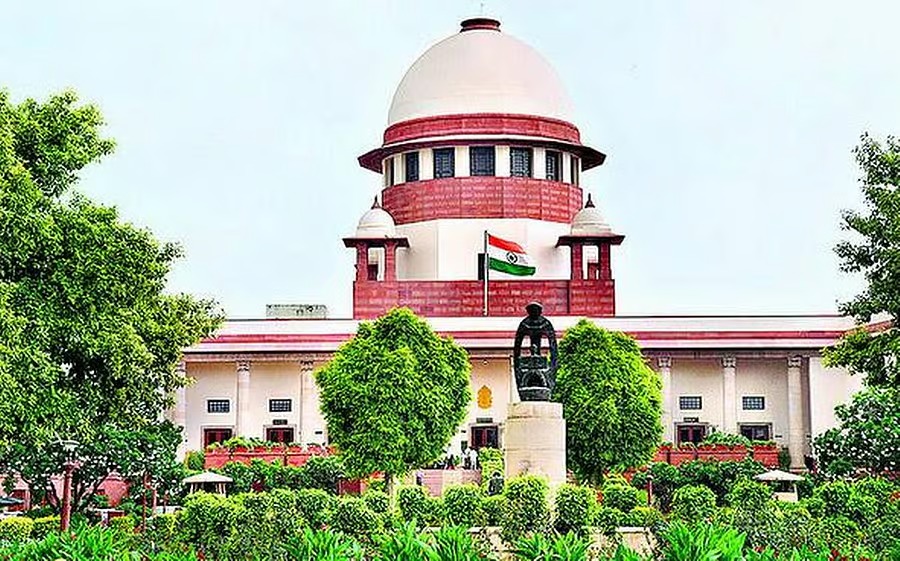Mr. Dama Seshadri Naidu, J. - The appellant, the petitioner in W.P.(C) No. 2101 of 2007, is aggrieved by the judgment dated 12.07.2016, through which a learned single Judge of this Court sustained Ext.P5 award rendered by the Industrial Tribunal, Alappuzha, with part-modifications, though: The appellant shall pay to the respondent workmen 60 days'' wages each.
2. The facts in brief are that the appellant, a propriety concern, is engaged in the business of ''putting up of pandals, stages, etc.'' The respondents 2 to 12 are the workmen in his establishment. Soon, the workmen raised an industrial dispute that their services had been dispensed with and that they had been unjustly denied wages. The Government, in turn, referred the dispute for adjudication to the Industrial Tribunal under the Industrial Disputes Act, 1947.
3. Through Ext.P5 award, the first respondent Tribunal directed the appellant to pay 90-days'' wages to each of the respondents 2 to 12 in full and final settlement of his claim. Aggrieved, the appellant filed W.P.(C) No. 2101 of 2007: The learned Single Judge, through a judgment dated 12.07.2016, partly modified the award-the compensation should be 60-days'' wages, instead of 90-days''. Further aggrieved, the appellant is before us.
4. The learned counsel for the appellant has primarily contended that neither the Tribunal nor the learned single Judge has gone into certain vital aspects, such as the impact of Section 2(oo) and 25B of the Act. According to him, absent any cogent material produced by the workmen, the Tribunal as well as the learned single Judge ought not to have jumped to the conclusion that the disengagement of workmen for a particular period amounted to deliberate denial of employment and that they be compensated. In the end, the learned counsel has urged this Court to interfere with the award as modified by the judgment of the learned single Judge.
5. As seen from the record, the Tribunal has thoroughly examined the issue: It eventually concluded that respondents 2 to 12 must be compensated for losing their earnings. The learned single Judge, on further analysis, has brought down the period to 60 days from 90 days.
6. From Ext.P5 award we can gather that both the appellant and the workmen have examined one witness each, apart from the workmen marking W1 to W3 as against the appellant''s M1. On evaluating the oral and documentary evidence, the Tribunal has held that despite the appellant''s plea that his business is seasonal and intermittent, he has produced no documentary evidence concerning the volume of business, the number of days the workmen were employed, wages disbursed, etc. So it has drawn an adverse inference and held that the management has not presented a true picture of its business. It has, however, accepted the workmen''s contention that they had been denied employment from 23.11.1998 onwards. Balancing the competing claims, the Tribunal has eventually held that it would be inequitable to burden the management with the entire liability. It, therefore, has fixed 90-days'' wages to each workman in full and final settlement of his claim.
7. In the challenge laid against Ext.P5 before this Court, a learned Single Judge in W.P.(C) No. 2101 of 2007 has, on merits, upheld all the factual findings rendered by the Tribunal. But, considering the totality of circumstances, the learned single Judge has modified the award limiting the compensation to 60 days'' wages, instead of 90-days''.
8. True, as has been contended by the learned counsel for the appellant, the workmen may not have placed much material to show the number of days they have been engaged annually. Equally true is that the appellant, the custodian of the record, has not produced even a scrap of paper before the Tribunal to sustain his positive claim about the nature of business and the manner of his engaging workmen. We can gather from the record that the workmen have been with the appellant ranging from 3 years to 20 years.
9. Further, the Tribunal records that earlier the jurisdictional labour officers tried to settle the industrial dispute between the appellant and the workmen. The appellant, apart from admitting the relationship, is said to have assured the labour officers that he would ensure work and wages to the workmen. So the dispute raised by the workmen was not for the first time. In fact, the appellant''s earlier conduct lends support to the workmen''s claim.
10. Under these circumstances, we find the findings arrived at by the Tribunal as modified by the learned Single Judge are just and proper. We, therefore, conclude that the impugned judgment, dated 12.07.2016, does not suffer from any legal infirmity. As a result, we dismiss the writ appeal as devoid of merit. No order on costs.

